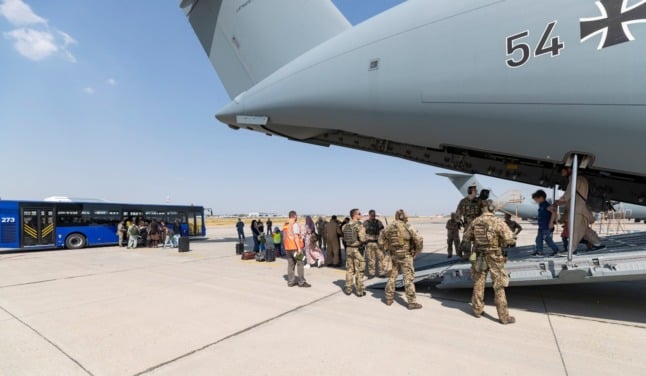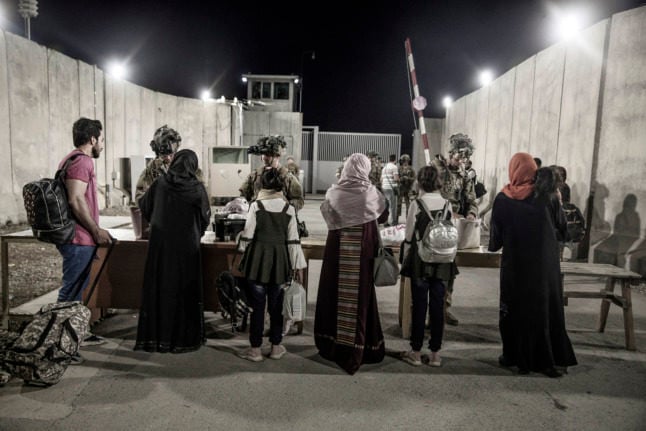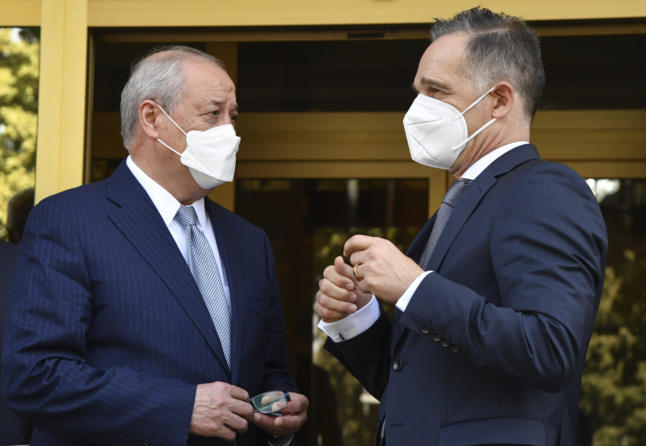“All soldiers, members of the foreign ministry and federal police who have led this mission to a safe end for us on the ground have been flown out of Kabul,” said the minister, adding that the military evacuation mission has therefore now ended.
It came following deadly bomb attacks at and around Kabul airport. Kramp-Karrenbauer said no German soldiers were injured.
“In view of the worsening security situation at the airport, I am glad and relieved that our soldiers who carried out this dangerous mission have just left the Afghan airspace safely,” said Kramp-Karrenbauer.
Germany evacuated more than 5,300 people, including more than 3,600 Afghans.
- READ ALSO: We need to talk to Taliban to preserve Afghanistan gains, says Merkel
- OPINION: Germany is failing its Afghan helpers – out of fear of repeat of 2015 refugee crisis
In a tweet, the Bundeswehr said it was “not possible to extend the operation due to the security situation”.
Die #Bundeswehr hat in #Afghanistan alles gegeben, um so viele wie möglich zu evakuieren – über 5.300 konnten wir helfen. Wir werden uns weiter um die verbliebenen zu Schützenden kümmern. Eine Verlängerung der Operation war aufgrund der Sicherheitslage nicht möglich.
Ein Thread: https://t.co/0A4jUgUy2C— Verteidigungsministerium (@BMVg_Bundeswehr) August 26, 2021
The German mission ended five days before the August 31st deadline for evacuations and a US troop withdrawal.
France has said it will end its evacuation operations on Friday afternoon.
Germany's defence minister & Bundeswehr Chief of Defence flew out to troops in Tashkent last night. The evacuation operation in Kabul was extremely dangerous. Under the most difficult conditions on the ground, the Bundeswehr brought as many people as possible to safety. pic.twitter.com/EF6JYuQdOy
— German Embassy London (@GermanEmbassy) August 27, 2021
‘Heinous’
Meanwhile, Chancellor Angela Merkel on Thursday condemned the attacks.
“We don’t know all the details yet but the terrorists targeted people waiting at the airport gates who were hoping to leave,” Merkel said.
“They wanted security and freedom and that is why it is an absolutely heinous attack in a very, very tense situation.”
Earlier in the day, Merkel’s spokesman said she had cancelled her trip to Israel due to the Afghanistan situation.
“The chancellor’s trip to Israel planned for August 28-30 has been cancelled in coordination with the Israeli prime minister due to current developments in Afghanistan,” Steffen Seibert said in a statement.
“Both sides agreed that the chancellor’s visit should take place at a later date.”
Merkel, who will retire from politics after a general election next month, was to hold talks with Israel’s new Prime Minister Naftali Bennett and President Isaac Herzog and receive an honorary doctorate from the Technion Israel Institute of Technology.
Throughout her 16 years in power, Merkel has described Israel’s national security as a crucial priority of German foreign policy due to the country’s historical responsibility for the Holocaust.




 Please whitelist us to continue reading.
Please whitelist us to continue reading.
Member comments